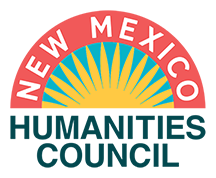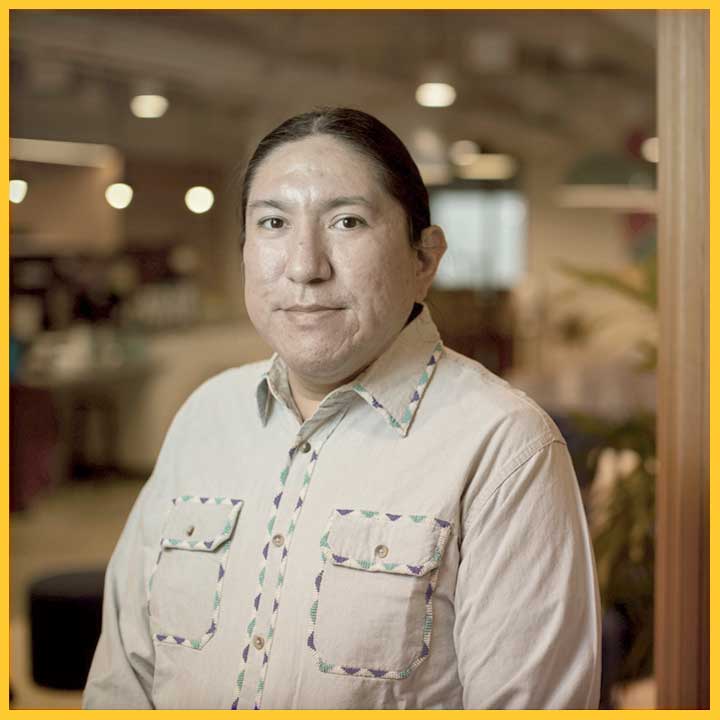
INDIGENOUS IN AI — LAKOTA LANGUAGE CAMP
Natives in Tech and Indigenous in AI have made it their respective missions to create a new narrative in which Lakota and Indigenous are included in and creating advanced technologies.
PHOTO CAPTION: Michael Running Wolf. Photo by Adam Glanzman/Northeast University.
SHARE:
In January 2022, Michael Running Wolf joined our Augmented Humanity podcast to talk about his efforts to create machine learning models for Indigenous languages. Recently he caught up with us to let us know what he was up to this summer…. read on to find out how AI, traditional foods and medicines, and Indigenous languages are intersecting in a way that inspires Native youth to pursue tech careers.
The inaugural Lakota AI Code Camp on the campus of Black Hills State University in Spearfish, SD just wrapped up, with enormous success!
The Lakota AI Code Camp is a collaboration between Natives in Tech and Indigenous in AI, sponsored by the Patrick J. McGovern Foundation and Meta AI. Shipt made a donation to supply the students with backpacks and individual supporters continue to make donations through the camp’s website. The Lakota AI Code Camp is developed and organized by an all Native American team of experts in their field: Dr. Ian Her Many Horses (Lakota), Mason Grimshaw (Lakota), Michael Running Wolf (Northern Cheyenne / Lakota / Blackfeet), Dr. Shawn Tsosie (Navajo/Little Shell), Andrea Delgado-Olson (Miwok), and Caroline Running Wolf (Crow).
From July 10 to July 30, 2022, a cohort of Lakota high school students started with the basics of Computer Science, then took a deeper dive into app development, artificial intelligence (AI), and machine learning (ML). They worked on several small projects, using industry-standard tools, that taught them skills such as data collection, image recognition, and coding in Python and C#. The students applied these skills to build a mobile augmented reality (AR) app. With this app, users can quickly access the Lakota name of everyday objects with their phone’s camera, similar to the Hawaiian language version Hua Ki’i co-created by Michael and Caroline Running Wolf with Hawaiian, Maori, and Gadigal AI researchers.
After the first intense week of classes the students, a phenomenal group of technologists, had trained their first models, analyzed datasets, and built their first games! They remained truly inquisitive and engaged. Most importantly, they helped one another work through challenges and have formed a group of friends who will continue to learn together, support each other, and have fun together. The students spent their first weekend hiking in the Black Hills, foraging for medicinal plants, and making salves under the guidance of ethnobotanist Linda Black Elk. They used the opportunity to take photos of medicinal plants.
In subsequent weeks, the students learned how to label this collected data, train a new model using transfer learning, and deploy this model in their custom-built mobile AR application. Lakota language teacher Beverly Running Bear helped identify the Lakota terms and shared some of her Lakota language and cultural knowledge with the students. By the end of the camp, students demonstrated their final project, a custom language learning app powered by AI, that they can use and share within their communities.
This is a unique AI code camp model developed by Natives in Tech and Indigenous in AI: Indigenous data scientists and professors are teaching data science and programming skills through culturally relevant activities, bringing the technology to the Lakota students in their homelands. The students gain hands-on experience with augmented reality, machine learning, and mobile development. The camp exposes Lakota high school students to potential careers in high-tech fields like artificial intelligence and inspires a new generation of Indigenous researchers.
Natives in Tech and Indigenous in AI have made it their respective missions to create a new narrative in which Lakota and Indigenous are included in and creating advanced technologies.
By developing partnerships between Lakota communities, foundations, and industry sponsors this will be a permanent annual program that will scale to more Indigenous Nations across North America. This Lakota AI Code Camp is only the beginning!
Website: Lakota.AICode.camp
Facebook: Lakota AI Code Camp
Twitter: @AICodeCamp
LinkedIn: Lakota AI Code Camp
Instagram: @AICodeCamp
Help make a difference! Click here to donate.
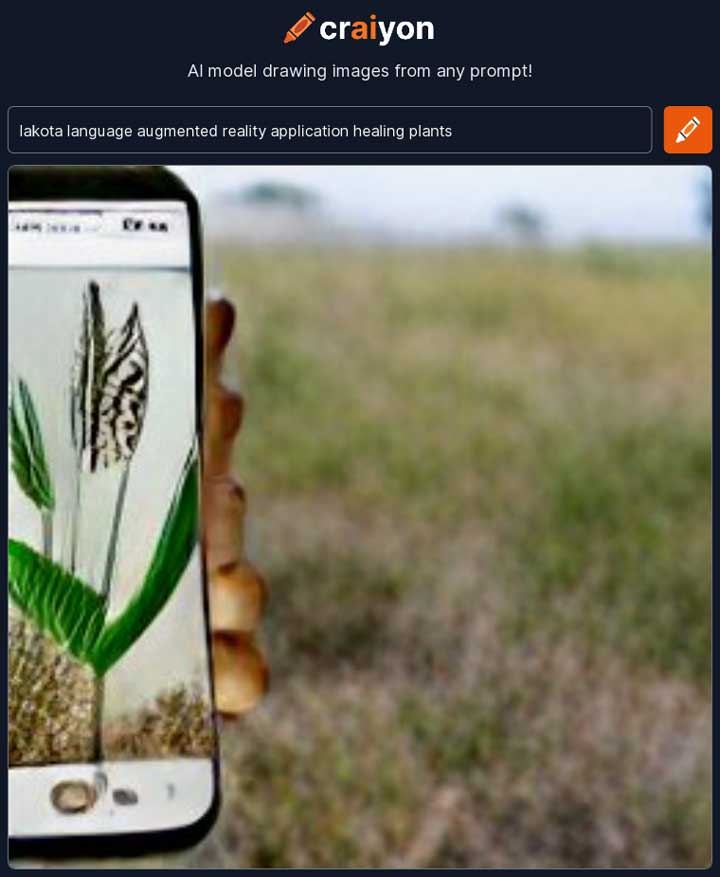
PASA POR AQUÍ
ADDITIONAL BLOG ARTICLES

NEW MEXICO’S AMAZING BLACK HISTORY
By Rob Martinez, State Historian of New Mexico.
“African history runs deep in New Mexico. Black history is often framed within the institution of slavery, but in New Mexico, New Mexicans of African descent were ambassadors, explorers, colonists, soldiers, cowboys, discoverers, settlers, businessmen, educators, and much more.”
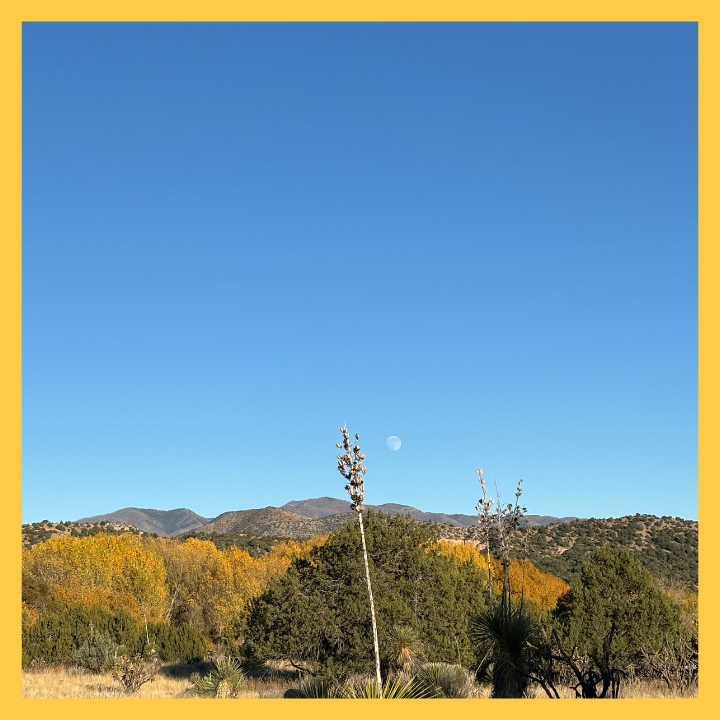
SCANNING FOR STORIES
It was a Friday afternoon in November and I was driving on a state road through the hills of the Mimbres Valley. The entire landscape was bathed in a golden hue because the tree leaves had made their full conversion to a bright yellow color just before falling off the branches.
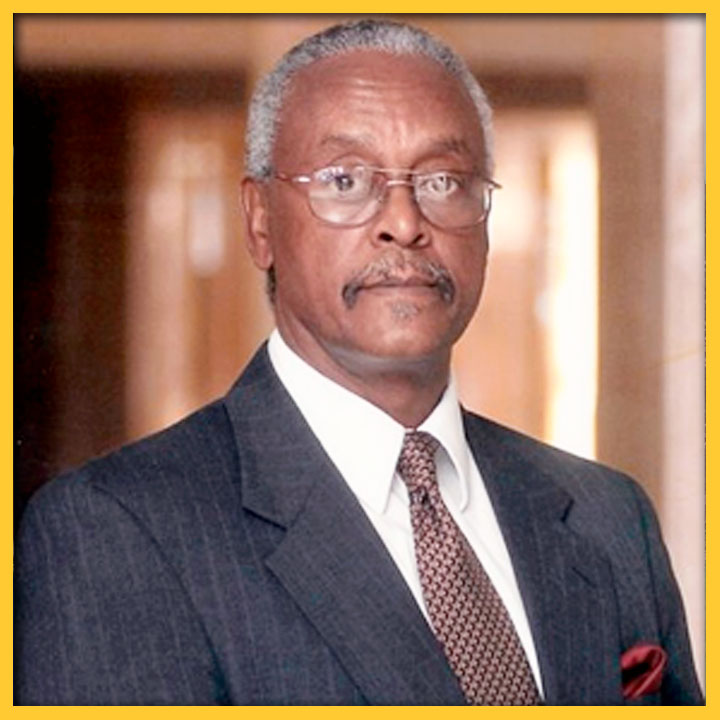
REFLECTIONS ON THE LOSS OF A NEW MEXICO CIVIL RIGHTS LEADER
By Carlyn N. Pinkins, M. A.
“The Dr. Harold Baileys of the world should inspire us all to do what we can to leave our communities, our towns and cities – our great state – better places than we found them. While we do our part to create the Dr. Harold Baileys of the future, we should also strive to make sure that the Dr. Harold Baileys of our past and present are never forgotten.”
SHARE:
DISCLAIMER:
Any views, findings, conclusions or recommendations expressed in this blog post/article does not necessarily represent those of the New Mexico Humanities Council or the National Endowment for the Humanities.
ABOUT THE AUTHOR:
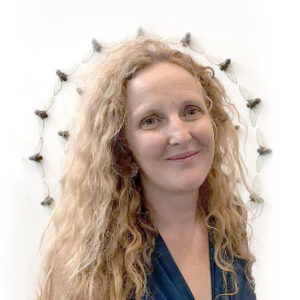
ELLEN DORNAN
Ellen Dornan serves as the CIO and the Digital Humanities Program Officer. Ms. Dornan has worked with the Council since 2001, serving as webmaster, NHD judge and junior division coach, and a scholar on grant projects and the Centennial Online Atlas of Historic New Mexico Maps. She joined as full-time staff in January 2016.
